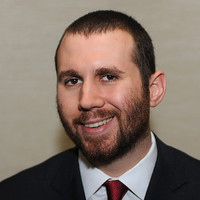Following high-profile national anthem protests, lawmakers passed a local ordinance requiring citizens to "stand solemnly and deport themselves with dignity" while the anthem is played.
Before conservatives cheer this development too loudly, they should know the law was enacted last year in Hong Kong and refers to "March of the Volunteers," the anthem extolling communism in the People's Republic of China.
More than 8,000 miles away, Republican legislators in Tennessee and Texas have similar designs on forced patriotism.
While Hong Kong soccer fans booing the Chinese national anthem prompted the law in China's semi-autonomous region, our domestic discord stems from athletes kneeling to protest racial injustice while "The Star-Spangled Banner" is played.
Tennessee Lt. Gov. Randy McNally and 26 state senators signed a Feb. 22 letter urging chancellors at the state's public universities to forbid student-athletes from kneeling during the anthem. The letter was drafted a week after the men's basketball team at East Tennessee State University took a knee.
"To address the issues, we encourage each of you to adopt policies within your respective athletic departments to prohibit any such actions moving forward," Senate Republicans wrote.
In Texas, Senate Bill 4 would bar local governments from signing deals with professional sports teams that involve taxpayer money unless teams agree to play the national anthem before each home game. Republican Lt. Gov. Dan Patrick has applauded the bill.
Dallas Mavericks owner Mark Cuban's decision to stop playing the anthem before games prompted that measure. The Mavs' experiment ended abruptly last month when NBA officials said the league would require all 30 of its teams to include the anthem in pregame ceremonies.
Controversy continues to swirl as the silent protest former San Francisco 49ers quarterback Colin Kaepernick started in August 2016 spreads throughout the pro, collegiate and scholastic sports ranks. Kaepernick initially sat on the bench while teammates stood for the national anthem, but after meeting with Nate Boyer, a former Seattle Seahawks player and Green Beret, he began kneeling to show respect for veterans and fallen troops.
Kneeling is a more reverent gesture than standing — service members kneel at military gravesites, and penitents kneel in church to humble themselves before God — but many conservatives still take umbrage at the protest posture.
While anthem kneelers say they're demonstrating patriotism by calling on the United States to live up to its ideals of liberty and equality, opponents say the practice makes a unifying ritual divisive.
Traditionalists are free to express their preference that people stand for "The Star-Spangled Banner," but they can't use government power to pipe the anthem through the loudspeakers or force fellow Americans to their feet. Compelled speech has been unlawful in the United States since 1943.
In West Virginia State Board of Education v. Barnette, a 6-3 Supreme Court struck down school rules requiring students to recite the Pledge of Allegiance and salute the flag. The gestures require "affirmation of a belief and an attitude of mind," the court noted, and making such vows mandatory violates the First Amendment.
"If there is any fixed star in our constitutional constellation, it is that no official, high or petty, can prescribe what shall be orthodox in matters of politics, nationalism, religion, or other matters of opinion, or force citizens to confess by word their faith therein," then-Justice Robert H. Jackson wrote.
Tennessee senators are asking university officials to break the law. As government institutions, public colleges can't require student-athletes to engage in symbolic speech with which they disagree.
While private sports leagues like the NBA can require teams to play the national anthem, the state of Texas lacks the authority to do so. Like individual players, organizations have free speech rights. Parroting the state's preferred message cannot be a condition of a government contract.
Politicians can pout and stamp their feet, but courts won't condone any effort to make the national anthem compulsory. Coercion runs counter to the true nature of American patriotism, which relies on sincere personal participation.
Francis Scott Key's ode to the red, white and blue honors "the land of the free." Those who prize conformity over freedom may be more comfortable in an authoritarian country like communist China.
Corey Friedman is an opinion journalist who explores solutions to political conflicts from an independent perspective. Follow him on Twitter @coreywrites. To find out more about Corey Friedman and read features by other Creators writers and cartoonists, visit the Creators webpage at www.creators.com.






View Comments